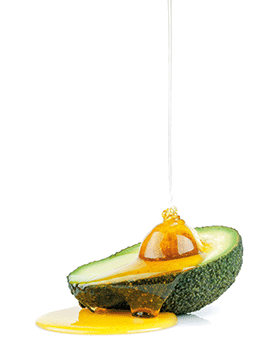Oils & their health benefits

Not all oils are bad – some have positive health benefits and are suited to different kinds of eating and cooking. Rude Health gets the facts
“We all need fat in our diet,” says Rob Whinnett of Blasta Wholefoods in Dungarvan, Co. Waterford. “It keeps us warm, adds flavour to our food and carries essential vitamins like A, D, E and K. Oils also contain essential fatty acids (omega 3 and 6) which cannot be produced by the body and are vital for heart health, skin and brain function.”
Nutritional therapist Aoife Martinho works in the Health Store in the Frascati Centre in Blackrock, Co Dublin: “Good fats are essential for optimum brain, eye and digestive function, energy levels as well as hormone production and vitamin absorption.”
Not all oils and fats are equal
According to Aoife Martinho there are four main types of fats:
Monounsaturated fats: olive oil, sesame oil, avocado oil
Polyunsaturated fats: fish oil, flax oil and walnut oil.
Saturated fats: coconut oil.
All of these can help promote health and wellbeing.
Trans fats: margarine and in biscuits and chocolates; fats that have been hydrogenated and have been linked to obesity and heart disease.
“Look for phrases like’ cold-pressed’, ‘raw’ or ‘virgin’ which describe oils that are minimally processed and thus retain their natural flavour and colour,” says Rob Whinnett.
Storing oils
“Light, heat and air are the sworn enemies of oils,” says Rob Whinnett, “so keep your oils tightly sealed in a cool, dark place. Some of the most flavourful oils that don’t get used rapidly, like avocado, hazelnut, flax, and hemp should be refrigerated.”
Choosing the best oil
“If you want to get the maximum health benefits from your oils, you need to know the right oil for each use,” says Rob Whinnett.
“Some oils like extra virgin olive oil are better used raw on your salads or drizzled over food,” says Aoife Martinho. “However, ghee (clarified butter) and coconut oil are suited to cooking at higher temperatures.”
What about Omega oils?
According to leading Irish nutritionist Jane McClenaghan, “We all know the benefits of omega 3s but don’t always get enough oily fish in our diets, so it is important to take a supplement, especially for your growing child. Blending the omega fatty acids, powerful polyphenol antioxidants and vitamin D3 from both the arctic and mediterranean diets has led to the development of Paradox, a totally unique form of omega oils with known health benefits to brain development, concentration, vision and bone health.”
Rude Health’s Top 5 Oils
1. Avocado – loaded with heart-healthy monounsaturated fats. It has a high smoke point making it suitable for cooking at high temperatures.
2. Coconut – contains lauric acid which is said to have both anti-bacterial and anti-viral properties while also supporting healthy cholesterol levels. It is perfect for stir frying and for use in curries.
3. Ghee, also known as clarified butter - stable at high temperatures meaning it is great for high heat cooking. It is rich in the fat-soluble vitamins A, D, and K2 and CLA (conjugated linoleic acid).
4. Olive – a real nutritional star which protects against heart disease by keeping ‘bad’ (LDL) cholesterol levels in check and raising the quantity of ‘good’ (HDL) cholesterol. Olive oil contains more monounsaturated fatty acids than any other natural oil. Use it on salads, add to cooked mashed potato or drizzle over steamed vegetables.
5. Peanut (groundnut) – contains heart-healthy phytosterols, essential plant fats thought to lower cholesterol. The high smoke point makes it a good choice for cooking over high heat (eg stir frying).
Click here to read other Rude Food articles.
Click here to return to the Rude Health Magazine homepage.